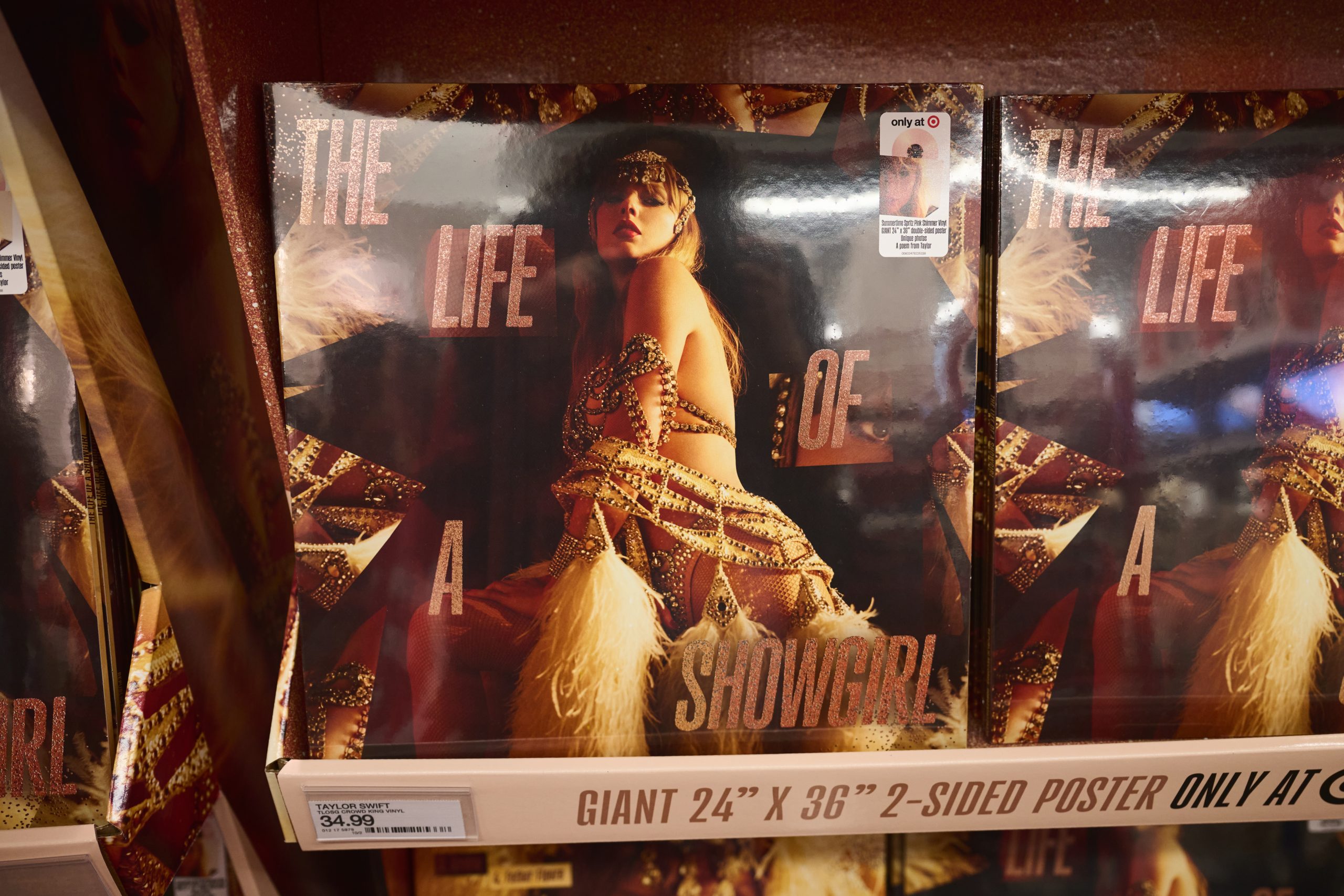Taylor Swift, a name synonymous with record-breaking albums and devoted fans, recently released her 12th studio album, “The Life of a Showgirl,” into a market seemingly primed for a letdown. But the source of the discontent may be less about the music itself and more about the perceived over-commercialization surrounding its release. Was this a misstep for the usually savvy pop icon?
Merch Mania: Too Much of a Good Thing?
Before the first note even dropped, Swifties were bombarded with an unprecedented array of merchandise options. From the “Shiny Bug Vinyl Collection” to the “Showgirl Cardigan Boxed Set,” fans were presented with a dizzying number of exclusive versions of the album, all vying for their hard-earned cash. The sheer volume of products raised eyebrows, with many questioning whether Swift was prioritizing profit over artistic integrity. This perceived over-merchandising created a sense of fatigue before the album even had a chance to stand on its own merits.
The Music Divides: Cringey or Courageous?
When the music finally arrived, it was met with a mixed reception, even among Swift’s most ardent supporters. Critics were divided, with some labeling the album “cringey” and “disappointing,” claiming that Swift’s music had “never been less compelling.” This negative feedback was in stark contrast to the overwhelmingly positive reception of her previous works. Swift, in response, acknowledged the subjectivity of art, stating, “I have a lot of respect for people’s subjective opinions on art. I’m not the art police.”
A Delicate Balance: Art vs. Commerce
The “Showgirl” saga highlights the increasingly complex relationship between art and commerce in the modern music industry. While artists undoubtedly need to generate revenue to sustain their careers, there’s a fine line between offering fans engaging merchandise and creating a sense of exploitation. The backlash against “The Life of a Showgirl” suggests that Swift may have inadvertently crossed that line, alienating some of her fanbase in the process.
In conclusion, the release of “The Life of a Showgirl” serves as a cautionary tale about the dangers of over-merchandising and the importance of maintaining a delicate balance between artistic expression and commercial interests. While Taylor Swift remains a formidable force in the music industry, this experience may prompt her and other artists to reconsider their strategies for future album releases, prioritizing artistic integrity and genuine fan engagement over sheer profit maximization.
Based on materials: Vox





